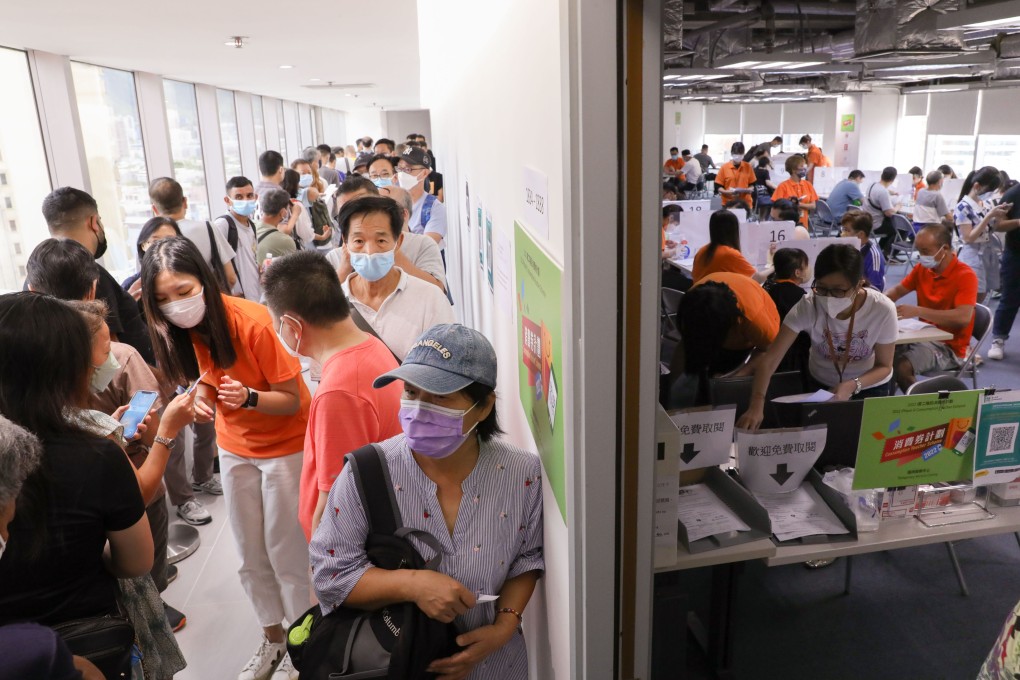Editorial | Expensive lesson to learn in Hong Kong consumption voucher row
- There needs to be clearer criteria to determine ineligibility so that those in line for electronic consumption coupons will not be arbitrarily disqualified

The electronic consumption voucher is one of the most well-received pandemic relief measures. Yet it can easily turn into a flashpoint of controversy when not handled well, as reflected in the confusion over the benchmarks used to screen out those who are believed to have emigrated. There needs to be clearer criteria to determine ineligibility so that recipients will not be arbitrarily disqualified.
With as many as a quarter of a million people initially ruled ineligible for the HK$5,000 handout, the outcry is understandable and must be carefully addressed by the authorities. Originally, some 6.3 million residents were expected to benefit, plus 300,000 people who are mainly entrepreneurs, those with talents and students under special admission schemes. At the same time, the government heeded calls to reject those with plans to migrate when the second tranche of the HK$10,000 per head voucher is released on August 7.
As with other Covid-19 relief measures, the shopping handout serves to boost the economy and promote electronic payments. While the criteria for other subsidies were relatively loose, the voucher has more strings attached. With more people leaving the city recently amid concerns over its future, targeting emigrants may give the impression that a well-intentioned economic initiative has been complicated by political overtones. Using the records of citizens withdrawing Mandatory Provident Fund (MPF) savings to determine one’s intention to emigrate also seems too broad and rigid. Some who lined up in the government office to appeal against the ban admitted that they did empty their MPF accounts and lived on the mainland for a while, but have since returned to work again and are paying taxes and making MPF contributions once more.
Those aggrieved by the confusion may be relieved to learn that remedies are under way. Financial Secretary Paul Chan Mo-po said the appeals would be handled in a lenient manner, such as allowing applicants to provide utility bills to prove residency. This would enable those affected to seek redress more easily, though the manpower and administration costs may be huge. The government must learn its lesson and consider a more targeted approach so citizens will not be arbitrarily disqualified for the handout.
